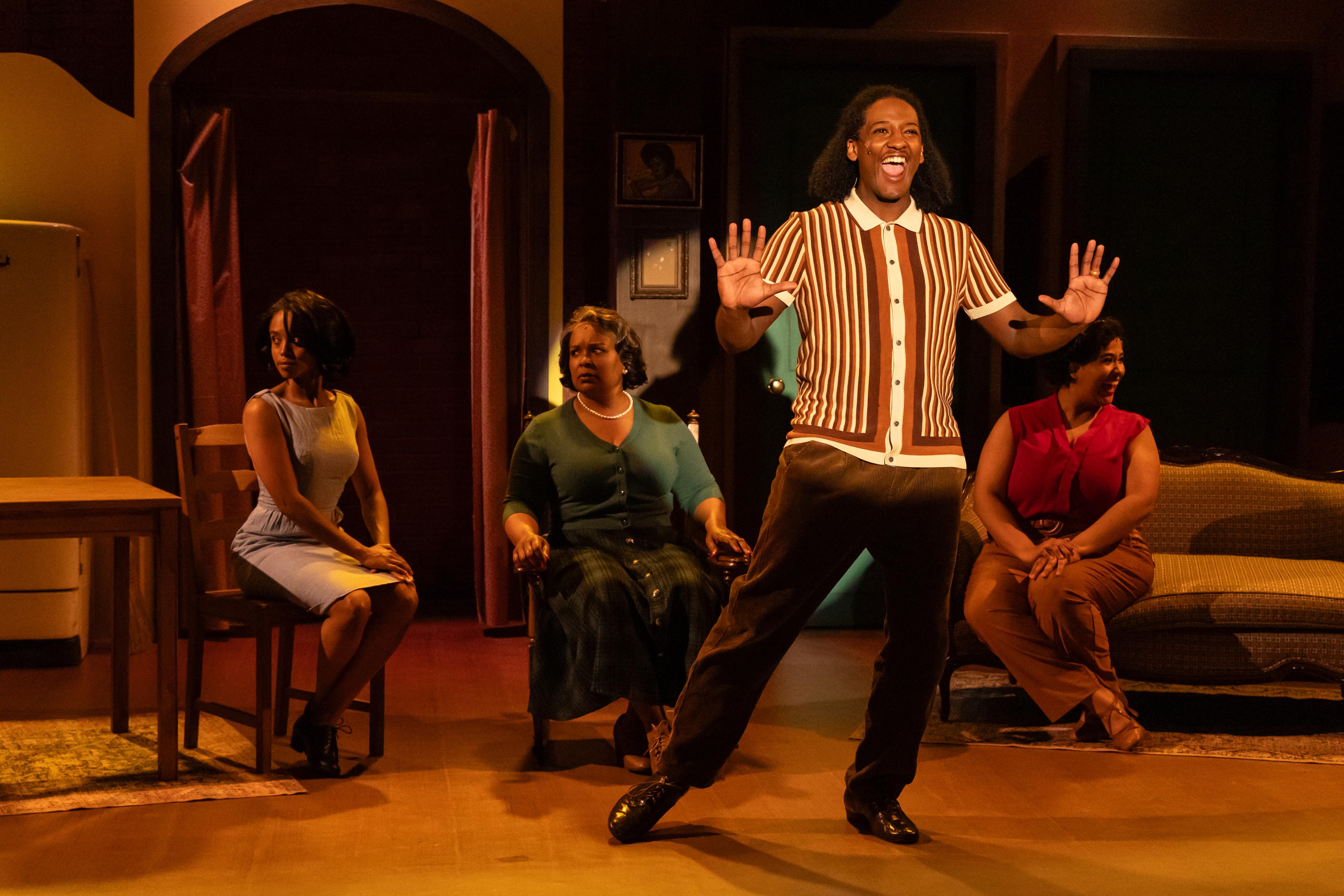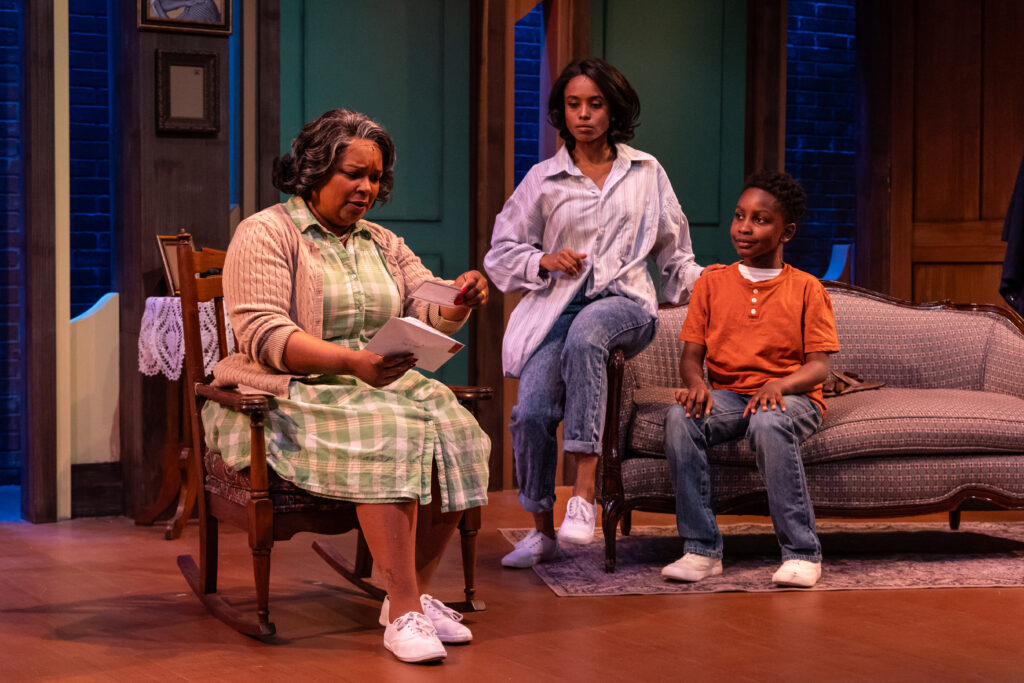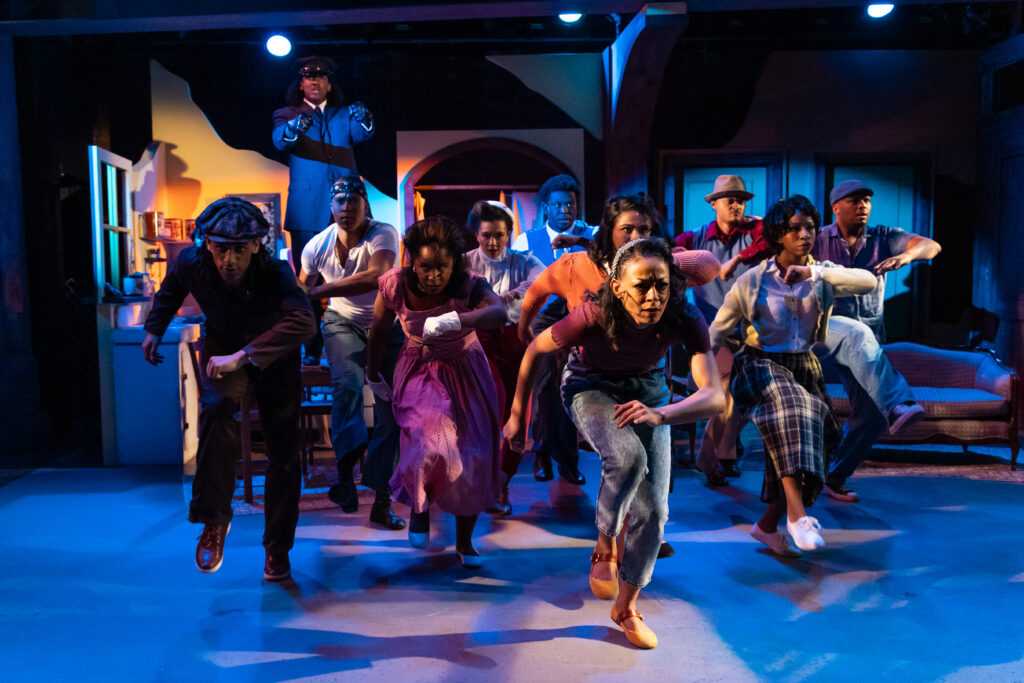
Town Hall Arts Center in Littleton is doing something that hasn’t ever been done by a Colorado theater company before; it’s designating this Saturday’s performance of the musical “Raisin” as a Black Out performance. That means the company is inviting Black people specifically to fill the audience for this musical adaptation of Lorraine Hansbury’s “Raisin the Sun.”
“This Black Out performance is not just about getting people to the theater,” explained director Christopher Page-Sanders. “It's getting people to the theater and getting them involved or excited about potentially becoming involved.”
Black Out shows are the brainchild of playwright Jeremy O. Harris, who first debuted the idea in 2019 during the Broadway run of his work, "Slave Play."
The Black Out Nite website defines a Black Out as “the purposeful creation of an environment in which an all-Black-identifying audience can experience and discuss an event in the performing arts, film, athletic, and cultural spaces – free from the white gaze.”
Harris has said shows like "Slave Play" and "Raisin," which deal with “racial trauma,” can be a hyper-sensitive experience for Black audiences.

Savannah Reeves, Town Hall’s Director of Patron and Community Engagement, was inspired to bring the idea to Colorado when she was scrolling through Instagram and saw a video by Harris.
“He said that ‘people must be radically invited into a space in order to know that they belong there,’” recalled Reeves. She was struck by what that would mean for a theater company in a community like Littleton, where Black people make up less than one percent of the town’s population.
Reeves said the theater is excited to present the Colorado premiere of “Raisin.” The story covers a difficult time in the life of the Youngers, a Black family living on the South Side of Chicago in the 1950s, as they struggle to prosper in the face of racism and housing discrimination.
Being the first theater in the state to host a Black Out night feels like a “delightful surprise” to Reeves.
“As a PWI, or a Predominantly White Institution, I think a lot of times people get scared to take on those kinds of topics or those kinds of shows,” said Reeves. “But I think for us, we took a really important turn in looking at that and saying, ‘not only are these shows and these stories important to be able to tell, but we need to bring those communities in order to be able to tell their stories themselves.’”
Director Page-Sanders sees the Black Out performance as an opportunity to use theater as a vehicle for change and outreach, and a chance to get more people involved in the arts: “It's about finding accessibility … Theater for many of us can be more than just entertainment.”
However, Black Out events in other cities have been met with some controversy.
While the goal of Black Out is to provide a space for as many Black-identifying audience members as possible, no one is turned away (Saturday’s show at Town Hall will also include subscribers who already purchased tickets). Despite the explanation, the concept has critics, including British Prime Minister Rishi Sunak, whose official spokesperson earlier this year described a West End theaters’ Black Out nights as "concerning" and “divisive.”
Reeves acknowledged that Town Hall has also gotten some pushback for the show, which she attributes mainly due to the phrase "free from the white gaze" in the event description. However, she feels the team has successfully communicated the mission behind the event.
On its website, Town Hall explains, “Town Hall Arts Center believes that communities who may otherwise not see themselves in our space must be radically invited in order to know that they belong and are welcomed here.”
Reeves credits Ashlee Varra, the company’s House Manager and Patron Experience Associate, who joined Town Hall Arts Center last year during the run of “Once on This Island,” for not just changing some of the company cultures but also illustrating how the experience can be different for different patrons.
“She's been invaluable in that, and she's been really strategic in helping us to make sure that we're doing this right and not just thinking that we're doing it right,” Reeves said.

“We're not excluding anybody, but at the same time, we are inviting our community,” explained leading lady Mary Louise Lee, who plays the family matriarch, Mama Lena Younger. Lee finds this special one-night event exciting.
“We don't see a lot of Black people in audiences here in Colorado, and other places as well, as many as we need to have in the audience. And so, just like we say all the time, representation matters,” Lee said. “When people see people that look like them on TV, see people that look like them on the stage, see people that look like them in the boardroom, it makes a difference all the time. It makes a difference.”
Director Page-Sanders asks anyone uncomfortable with the Black Out event to reflect on those feelings.
“I would ask them to do a heart check, to do a temperature check on their heart (and) compassion, and knowing the circumstances of those who don't often get the opportunity to come to the theater,” Page-Sanders said.
Town Hall’s Black Out performance of "Raisin" is this Saturday, April 6. The show runs through April 14.
- The Aurora Fox launches a 10-year commitment to produce 10 plays by two-time Pulitzer Prize winner August Wilson
- For two emerging playwrights, Colorado New Play Summit is a convergence of creativity, inclusion, and representation
- ‘A Jukebox for the Algonquin’ brings a story of sex, drugs, and rocking chairs to Golden’s Miners Alley









